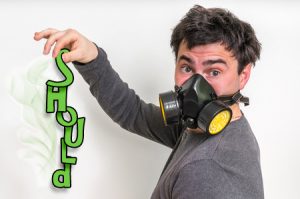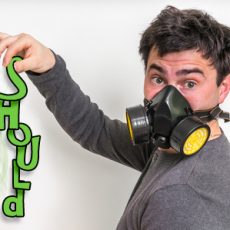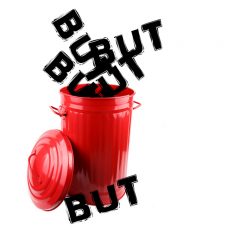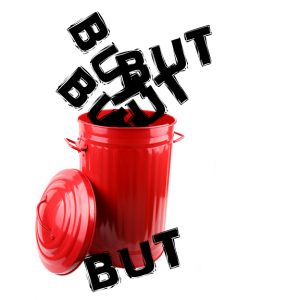20 Ways to Change Your Story
4. Don’t Should Yourself

When you should yourself, you create a story that really stinks.
Just like the word “but” in the previous post, I’m going to suggest that you eliminate “should” from your vocabulary. And while you’re at it, eliminate these related words too:
- should / shouldn’t
- have to / can’t
- must / mustn’t
What do all these words have in common?
Not one of them leaves any room for choice. And choice is where your power lies.
It’ll be no big surprise, then, when I tell you that the key to rewriting “should”, “have to” and “can’t” stories is to replace and reframe them with choice stories. Replace those stinky words with some form of the verb “choose” and you’ll have a new and improved story that smells like freedom.
~~~
I really should go to bed; it’s getting late.
becomes
I choose to go to bed because it’s getting late.
OR
I choose to stay up for a while even though it’s getting late.
~~~
I can’t go to the party tonight. I have to visit my mom.
becomes
As much as I’d love to go to the party, I’m choosing to honor my promise to visit my mom tonight.
OR
Even though tonight’s my usual night to visit my mom, I’m choosing to reschedule my visit with her in order to go to the party.
~~~
In both of the above scenarios, either of the reframed options is fine and you are free to choose which option is the most resourceful and feels best to you. You are no longer trapped in a stinky pile of “should”.
Now, you may be thinking, “but, there ARE things I should do or have to do – I have to go to work, I have to take care of my kids.” (or fill in the blank with your own “have to”.)
I would argue that, short of breathing, there really are no “have tos”. Even breathing is a choice when you really look at it. You could choose not to breathe and find a way to make that happen. Of course, the consequences would be fairly drastic – you would die. Any choice leads to consequences and it’s up to you to decide which consequences you’re willing to accept. That decision may involve considering and balancing your values, priorities and goals.
So, exercise your free will and make choices. Regardless of whether you decide go to bed or stay up late, go to the party or visit your mom, you’ll feel a lot better about your choice when you leave the stink of “should” far behind you.
~~~~~
This is the 5th post in a 21-post series sparked by Chapter 9 of Fallen, The Adventures of a Deep Water Leaf, in which Lizard suggests that Alora change her story.
#20WaysIn20Days, #ChangeYourStory, #Fallen



 Watch what happens when we replace “but” with “and”.
Watch what happens when we replace “but” with “and”.